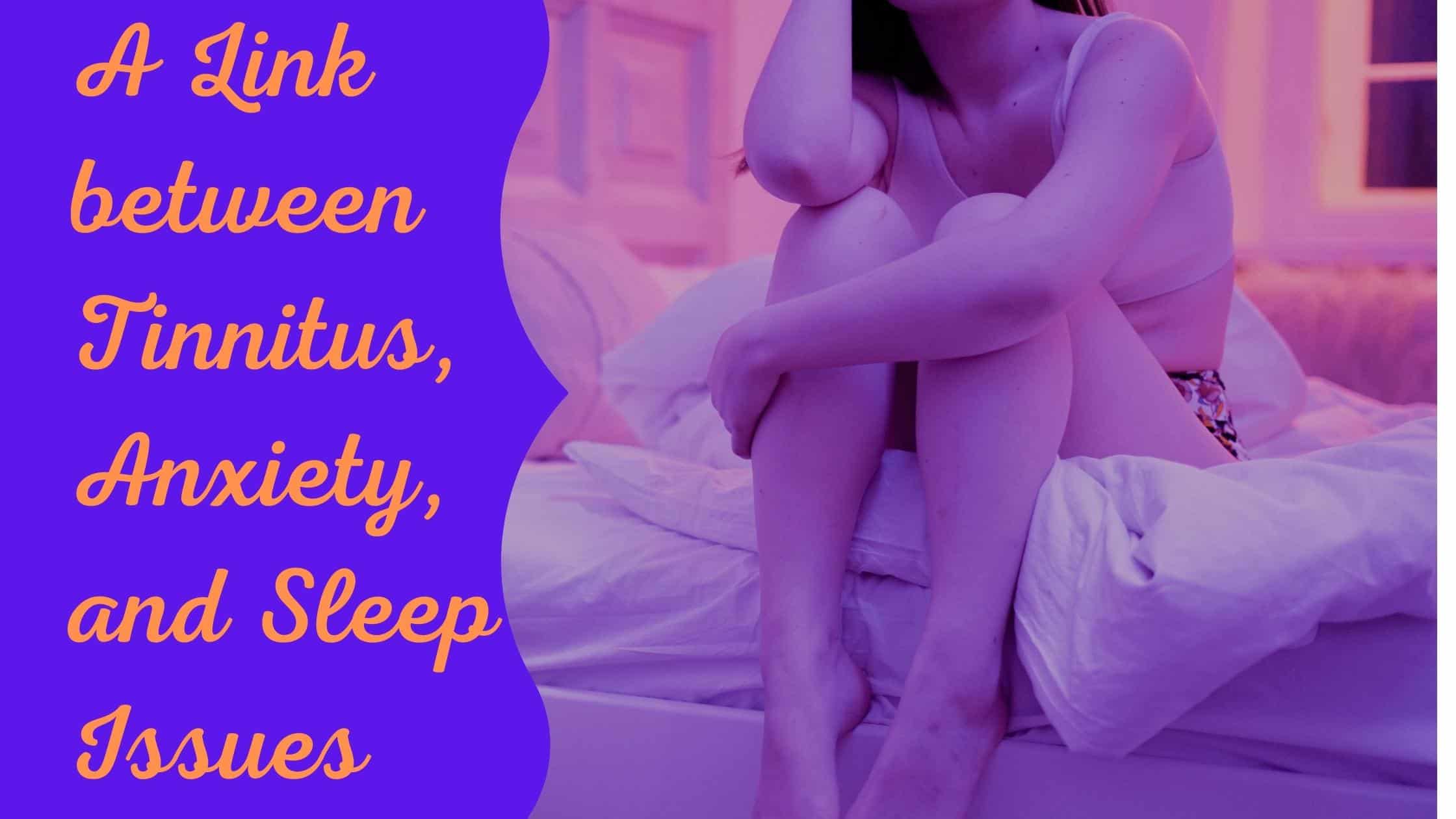
If you hear a ringing or buzzing sound in your ears, you’re not alone. Millions of Americans experience tinnitus in one or both ears. Tinnitus is closely linked to anxiety, and can also cause sleep issues. Here’s more information about tinnitus, how it is linked to anxiety and sleep disturbances, and what you can do about it.
What is Tinnitus?
According to the American Tinnitus Association, approximately 15% of Americans have experienced tinnitus. This is a phantom sound. The buzzing sound you hear isn’t coming from anywhere in your environment, it’s coming from in your ears and brain. Tinnitus can sound like:
- Ringing
- Whistling
- Whooshing
- Roaring
- Hissing
- Squealing
- Buzzing
- Static
- Pulsing
Tinnitus affects everyone differently. Some people may experience a high-pitched tinnitus, while others may hear a low-pitched sound. If your tinnitus is loud, it can also interfere with conversations, and make it harder for you to understand the consonant sounds in speech.
What Causes Tinnitus?
Tinnitus is usually caused by damage to the cells in your ear. These are the same cells that help you hear, and when these cells are damaged, you may experience hearing loss. That’s why tinnitus and hearing loss often occur together. Some medications can also damage cells in the ear and lead to tinnitus. Other causes of hearing loss include a head or ear injury, an ear infection, and exposure to loud noise.
Is Tinnitus Temporary or Permanent?
Tinnitus can come and go. If you’ve been to a loud concert, you may have noticed a ringing in your ears when you stepped outside after the show. This is temporary tinnitus, and it probably went away on it’s own in a few minutes or hours. Tinnitus can be recurring, and you may hear it on and off throughout the day or week.
Tinnitus can also be permanent. Permanent tinnitus is always present. You may not notice it when you’re in a place with background noise, but as soon as you’re in the quiet, you will hear tinnitus. This permanent tinnitus is especially problematic at night when you’re trying to sleep.
Tinnitus and Anxiety
If you have tinnitus, you know how annoying it can be. Tinnitus makes it hard for you to concentrate on tasks, and whenever your tinnitus starts you feel irritated and stressed. The problem is that the more stressed and anxious you feel about tinnitus, the more you’ll pay attention to it. You’ll listen for it all the time and hear it more often. Focusing on the sounds will also bring them into your attention, making them seem even louder.
Anxiety can make tinnitus worse, and when your tinnitus gets worse your anxiety also increases! This negative cycle continues until you find a way to break the cycle, either by decreasing your experience of tinnitus or decreasing your anxiety.
Tinnitus, Anxiety, and Sleep
Tinnitus causes a lot of sleep disturbances. Your bedroom is one of the quietest spots in the house, and it’s the perfect place to notice tinnitus. When you lay down to sleep, you may start hearing tinnitus, and then feel anxious because of the sound. This has a huge impact on your sleep. You might lay awake for hours getting more and more anxious and stressed and have the tinnitus get even more noticeable.
Poor sleep also increases both anxiety and tinnitus. When you’re tired, you’re less able to deal with anxiety, and you’re more likely to feel irritated and annoyed. Fatigue can also make your tinnitus seem louder and more obvious.
Treating Tinnitus
One of the best ways to lower your anxiety and improve sleep is by treating tinnitus. Many modern hearing aids have built-in tinnitus therapy programs designed to bring you relief from these annoying sounds. These programs are usually based on sound therapy. They’re set to match your tinnitus, then will play white noise or other sounds that mask your tinnitus. The tinnitus will fade into the background, and you can get on with your day without thinking about your ears.
Treating tinnitus also helps you sleep at night without worrying about the ringing in your ears. It will help you fall asleep sooner, and get the sleep you need to wake up feeling ready to tackle a new day. Visit us to learn more about tinnitus treatment programs.
